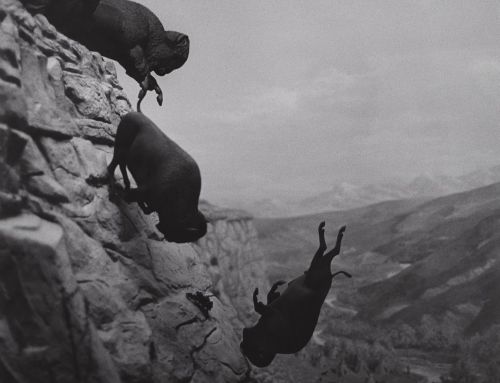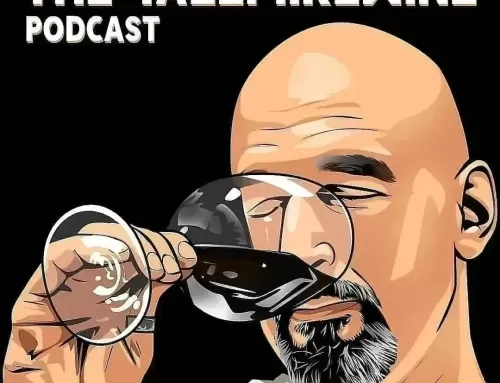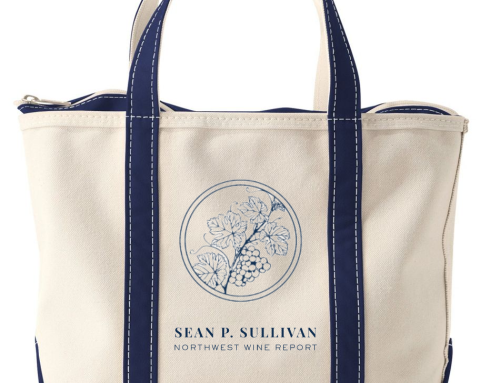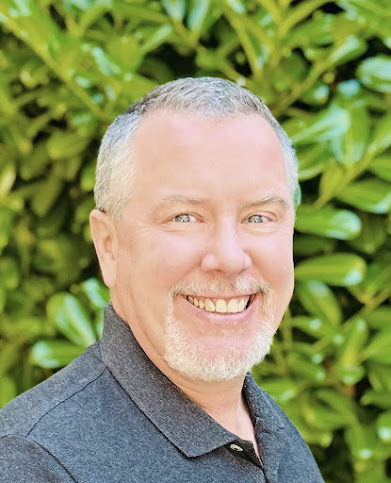The following post is written by Carrie Simon. Simon is the founder of Washington Wine 9, a custom trip planning service to travelers for Washington State’s wine country.

At the time, Brooks was nearing 40 and was determined to transition out of his nearly 20-year career at CNN in Atlanta. The news business had become physically draining, mentally depressing, and a detriment to Brooks’ family life. Brooks recalled that his grandparents, Italian immigrants, made wine in their basement and they routinely enjoyed it with meals; the newspaper article was all he needed to embark on a new journey as a winemaker. “This is the one shot I’m going to have,” he recalled thinking to himself. “I’d never forgive myself for not taking it.”
Brooks’ story is hardly unique. Once the territory of multi-generational farming families, the wine industry in Washington now holds among its ranks an ex-professional football player, Hollywood actor, potato-chip maker, hedge fund manager, musicians and others who have turned to the craft to find fulfillment and gratification.
I’m drawn to these stories of courage, perseverance and deep-seated desires to find new purpose because I, too, belong to this collective migration. I left Wall Street to start Washington Wine 9. The need to change our lives nags us all at one time or another.
When Brooks told his wife, Lori, that he wanted to move their family to Walla Walla, she promptly reached for an atlas and, upon locating the remote town, declared, “There’s no way in hell.” It ultimately took five years, but the Brooks family created Trust Cellars, named for the leap of faith it took to turn a gut feeling into a reality. While trust has guided Brooks’ endeavor and he wouldn’t change a thing, he is quick to caution anyone considering such a drastic shift: “Don’t quit your day job.”
Corey Braunel and Chad Johnson, both employed by a pharmaceutical giant, were lucky their day jobs had enough freedom built in to allow them to explore winemaking without first quitting. After years of professional dissatisfaction, Johnson’s wife, Janet, gave him an ultimatum: “Stop trying to put lipstick on a pig! Chase your dream!” Shortly thereafter, the Johnsons moved to Walla Walla. Braunel, his wife, Cindy (who is Janet’s sister), and their newborn soon followed.
Braunel and Johnson seemed to have it made: flexible jobs that allowed them to relocate to a growing wine community; paychecks to support their families as they began to explore their shared passion; supportive wives; and they were crushing wine less than a few months after arriving in town.
But Janet was not taking to small-town living and making friends was challenging. The Braunels learned that they were expecting twins and, in less than a year after their arrival in Washington, had three children under the age of 2. Both men were working around the clock – in sales by day, often having to travel for business, and making wine by night. Difficult days, to say the least, but Johnson and Braunel have no regrets. They eventually did quit their day jobs to commit to their winery, Dusted Valley, full time. Cindy joined the team, too. Their shared perseverance has made their success all the sweeter.
And then there’s Jamie Brown. Of all the career changers I’ve met in my travels through Washington wine country, I am most struck by Brown’s commitment to finding a fulfilling career. For 20 years, he struggled to become a musician – music his first passion. Eventually, approaching 40, he had a “come-to-Jesus” talk with himself, and was able to find the courage to leave music to discover another passion – at the time, unknown.
Brown returned to Walla Walla, his hometown, and discovered in his first week a natural affinity for wine that he’d never had with music. It was an “a-ha moment,” one that came as a great surprise. He also already had a clear vision for his end product, which only strengthened his resolve to pursue winemaking.
Brown went on to work every odd job in the industry he could find, collecting paychecks from no fewer than 15 wineries in his first year. He went on to apprentice with Eric Dunham, of Dunham Cellars, and in 2000 made his first couple barrels of wine. Brown established Waters Winery in 2005 and has become a widely respected winemaker. He attributes his success to the most important lesson he learned in the music business: “Never hesitate in your expression.”
While most of the stories I hear involve significant blood, sweat and tears, the exception lies in Billo Naravane – his path to winemaking seems to have been charmed.
Naravane had spent more than 10 years in high tech and was “completely burned out.” He went about his transition methodically, as one might expect from one with a Masters degree in electrical engineering. He completed the prestigious viticulture program at University of California Davis (earning a second Masters degree), wrote a detailed business plan with his business partner (who is also his brother), found investors, and went to visit Washington wine country.
From there, Naravane’s story becomes almost too good to be true. During an introductory meeting, he impressed the owners of DuBrul Vineyard so much that, despite the years’ long wait list for their coveted grapes, Naravane was promised an allotment. Then he happened to meet the area’s leading agent for vineyard property who called just one week later with a tip about a highly desirable piece of land in the valley. Seizing the good fortune that came his way, Naravane threw his plans aside: he bought the property, just before he and his brother did their first crush with the DuBrul grapes – Rasa Vineyards launched a full year ahead of schedule.
Said Naravane: “I didn’t want to be on my deathbed regretting not following my dreams.”
See Washington Wine 9’s January Winetinerary including these wineries and others here.







Nice job Carrie. Well written. CS
Inspiring to read of people following their dreams, finding not only success, but fulfillment.
Love this post.
Great stories. I know all these guys, and it is inspiring to see what they have achieved.
Great write-up, Carrie. Can't wait to come check it all out.
i can identify w this….